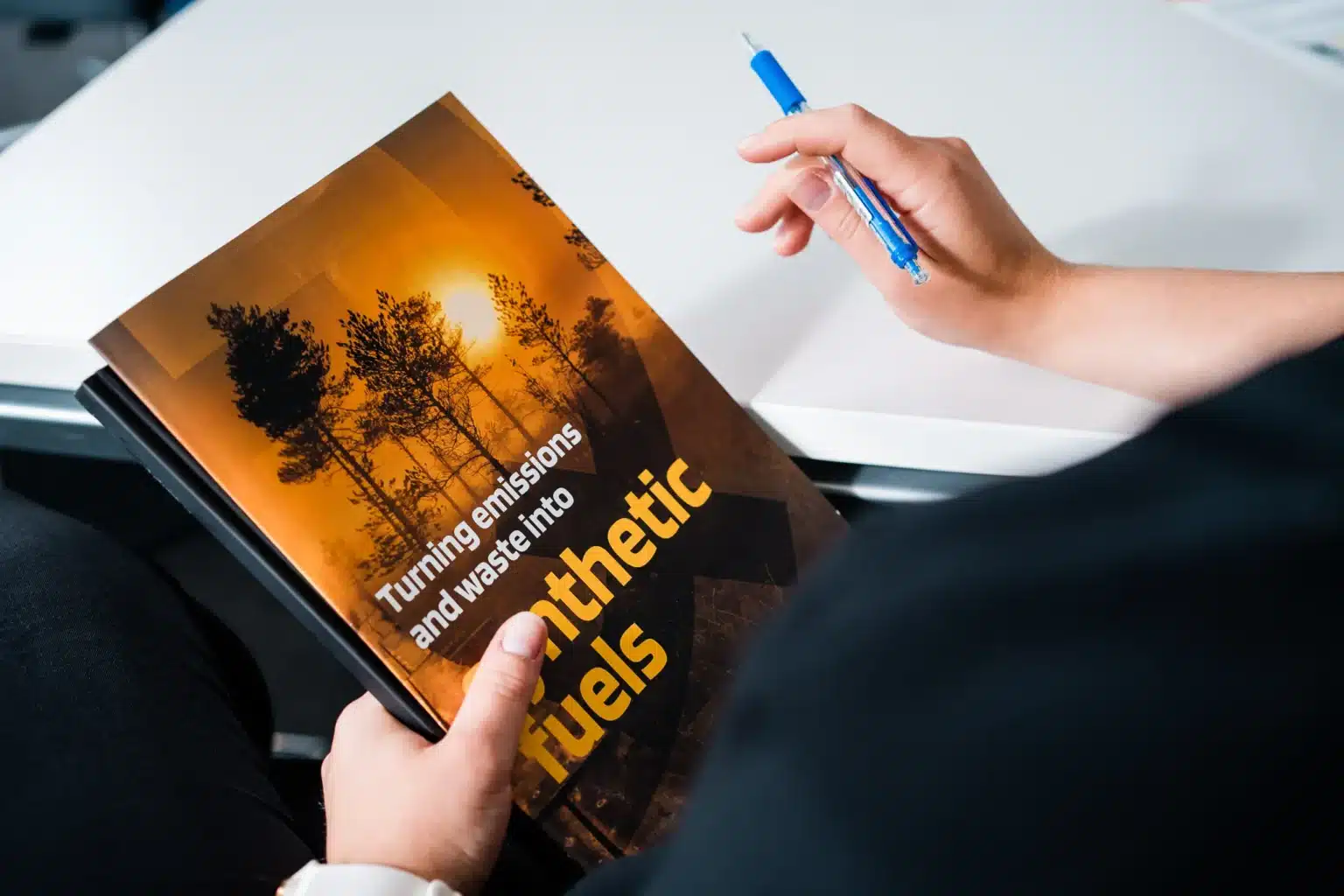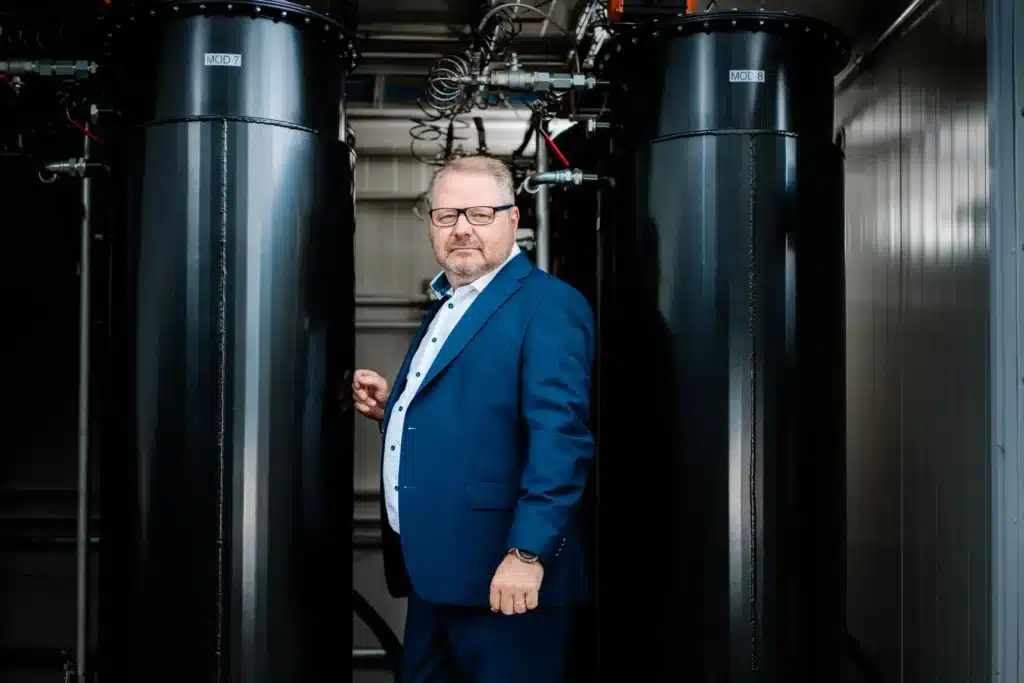As we continue our journey towards the energy transition and continue to fight against climate change, hydrogen is gaining a lot of hype in discussions. The significance of hydrogen cannot be overstated since it is a stepping stone towards larger solutions in transforming the energy landscape.
There is a need for energy carriers like hydrogen, but we also understand that large-scale utilization of hydrogen as such is taking quite some time. For example, in Europe, hydrogen accounts for roughly 2 % of energy usage, and at the same time, in energy and fuel usage we rely heavily on natural gas.
Luckily, we have ways to speed up the transition to a hydrogen economy by further refining hydrogen into drop-in fuels that can be utilized in the current infrastructure and energy landscape. One of these alternative fuels is eMethane which can replace fossil natural gas and LNG. eMethane is leading the way towards fossil-free, sustainable energy solutions. Let’s investigate how hydrogen serves as an enabler for eFuel production and helps us to reduce the use of fossil fuels.

eMethane: A Bridge to Decarbonization and Hydrogen Economy
The recipe for producing renewable eMethane is simple: we need green hydrogen and preferably biobased, recycled carbon dioxide for example from industrial flue gases, landfill gas, biogas or syngas also many other sources are available.
Hydrogen, especially when produced with renewable energy, is a vital part of the world with greener energy alternatives. Decarbonization is teamwork and we believe that there is no silver bullet in solving the issue of climate change, so we should set our minds open to advancing multiple solutions.
When we discuss developing a hydrogen economy, we should be discussing about full value chain from producing renewable energy to the end user, for example, synthetic liquefied gas usage in ships or trucks. Currently, there is some market demand for green hydrogen, mostly in the energy-intensive industrial sector. But for energy usage, there is a large market for natural gas and LNG; almost ¼ of energy consumption in Europe is produced with natural gas[1] , while only 10 % of natural gas is produced inside Europe [2]. The rest is imported.
There is a market for domestically produced eMethane production. The conclusion is that in order to build a fully functioning hydrogen economy at a faster pace we need to focus on hydrogen derivates. A significant impact can happen only when there are market-viable solutions available.
Ready-to-use drop-in fuel
eMethane is chemically identical to fossil natural gas and in the liquefied form it serves as LNG, making it a drop-in fuel and integrating seamlessly with existing uses, thereby minimizing transition costs and complexities. Together with recycled carbon, green hydrogen plays a significant role in making sustainable eMethane. When produced according to RED III eMethane also fulfills the criteria of RFNBO. But the most important factor is that through the reuse of captured carbon, eMethane achieves a remarkable goal – mitigating the adverse impacts of greenhouse gas emissions.
End users, such as heavy trucking and maritime, are seeking alternatives for fossil fuel such as liquefied synthetic gas (LSG) to replace LNG; eMethane is ready to step in as a viable solution, driving demand and adoption. Existing demand is a great opportunity for eMethane to make a change and replace fossil LNG and bring in new sustainable fuels.
There is no doubt that hydrogen is crucial for achieving our goals of a low-carbon future, but it needs companions and eMethane can help bridge the gap between ambition and reality. Through innovation, collaboration, and smart policies, we can fully utilize eFuel production, leading us toward a cleaner and more sustainable tomorrow. Let’s take this chance and push decarbonization forward, one molecule at a time.

Eero Paunonen, CEO
Eero Paunonen is the CEO of Q Power, with two and half decades of leadership experience in industrial services for the energy and forestry sectors. Safety and quality are paramount to Eero’s approach, ensuring that these values are at the heart of Q Power’s operations.